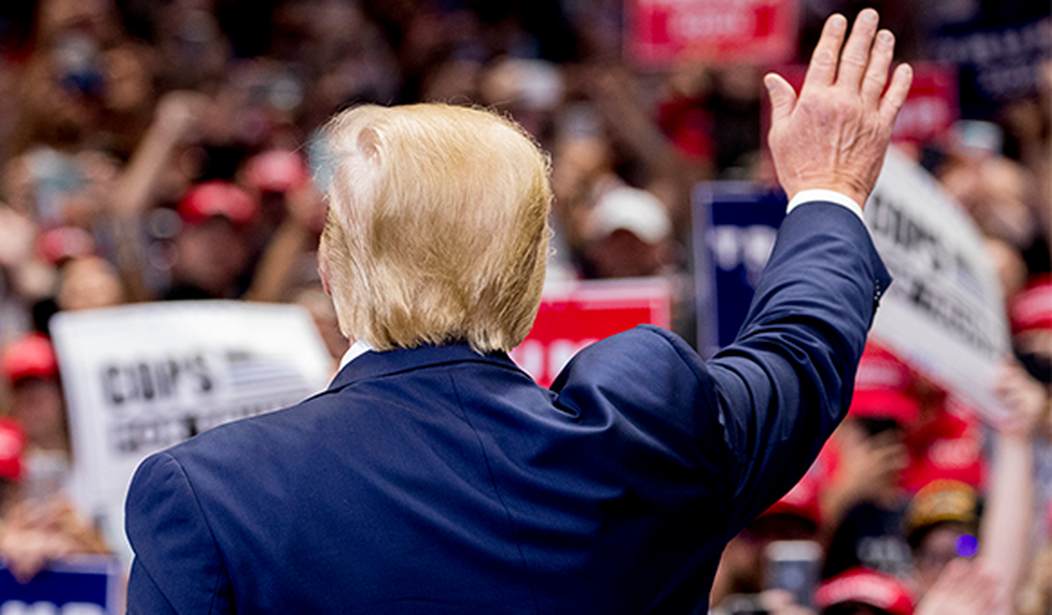PARIS -- What if U.S. President Donald Trump wins a second term? That's the unfathomable thought seeping into the minds of Democratic Party establishment members as they ponder the thoroughly underwhelming slate of candidates they're offering up to American voters.
The current crop of Democratic presidential contenders is so unimpressive that there are now rumblings about 2016 loser Hillary Clinton potentially joining the race. How did America end up here?
Democrats can't understand how Trump could conceivably still win in 2020 despite facing impeachment and continuing to make near-daily public displays of boorish behavior. Their main problem is that all of the viable Democratic candidates have been plucked from the establishment swamp. By varying degrees, they all speak and act like swamp creatures. They play up policy differences that are, in reality, minimal. Standing on the debate stage, they squabble over the color of the wallpaper with eye-glazing talking points while ignoring the larger issue of the bulldozer revving up outside. They conveniently sidestep the fact that they've had years in their current establishment positions to confront that bulldozer directly.
The Democrats respond to Trump with hysteria and the marginalization of anyone even remotely removed from their establishment groupthink, even to the point of smearing one of their own -- who also happens to be a combat veteran and a U.S. Army reservist -- as some sort of foreign agent. Rep. Tulsi Gabbard of Hawaii is running largely on her opposition to America's involvement in foreign regime-change wars -- a platform selling point that played no small role in Trump's election. Fellow Democratic candidate Kamala Harris has called Gabbard an "apologist" for Syrian President Bashar al-Assad. Hillary Clinton recently suggested during a podcast, minus any evidence, that the Russians are "grooming" one of the female Democratic candidates to be a third-party candidate -- seemingly a reference to Gabbard.
Recommended
While some of the Democratic hopefuls, to their credit, have voiced opposition to such rhetoric, it's telling that they don't dare adopt the same non-interventionist stance as Gabbard. These days, promoting troop withdrawal from foreign wars is seemingly more controversial than actually getting into a new war. Some of the same Democratic candidates who defended Gabbard have attacked Trump's recent decision to pull U.S. troops out of Syria, proving that they aren't willing to take a bold step toward peace and expose themselves to the same sort of hysterical neo-McCarthyism that Gabbard has faced.
Another advantage Trump has over the Democrats is an unwillingness (or perhaps inability) to fall into line with establishment conventions and limitations. Trump may be thoroughly testing America's democratic institutions, but he's also fulfilling his campaign promise to fight the establishment and the status quo.
Whether voters view Trump's aggression toward establishment modus operandi as a net positive or negative will ultimately depend on whether his accomplishments outweigh any serious breaches revealed during the impeachment process.
Trump is accused of withholding military aid in order to pressure newly elected Ukrainian President Volodymyr Zelenskiy to investigate Democratic front-runner Joe Biden and his son, and to announce the investigations in an interview on CNN. The idea of Trump using a foreign leader as a puppet to smear a political opponent and insisting that it be broadcast on a network Trump routinely accuses of "fake news" is quite something.
Any possible wrongdoing by Trump might not matter in the way that Democrats hope it would. Trump might be able to get away with just about anything because all of the people involved in this horrible psychodrama have played the game of politics as if it were a football game and scoring touchdowns against the opponents was the only objective.
The cheering of the crowds has drowned out quieter efforts at pragmatic, bipartisan problem-solving. The partisan rhetoric expressed through both traditional and social media has become increasingly obnoxious, radical and shrill -- the only way to rise above the din and attract attention from a particular "team." Democrats have contributed to this polarization as much as Republicans. So if voters choose to ignore Trump's misdeeds in favor of defending their team's leader at any cost, it's partly the Democrats' fault.
Voters aren't going to rationally assess the actions and words of Trump or any Democratic opponent against a neutral backdrop. They're going to view the 2020 election in the context of a domestic war in which the opponent has bombarded "their side" with incessant hostile rhetoric and has made no effort to engage them in a constructive and cooperative way. Ultimately, the big loser is America.

























Join the conversation as a VIP Member